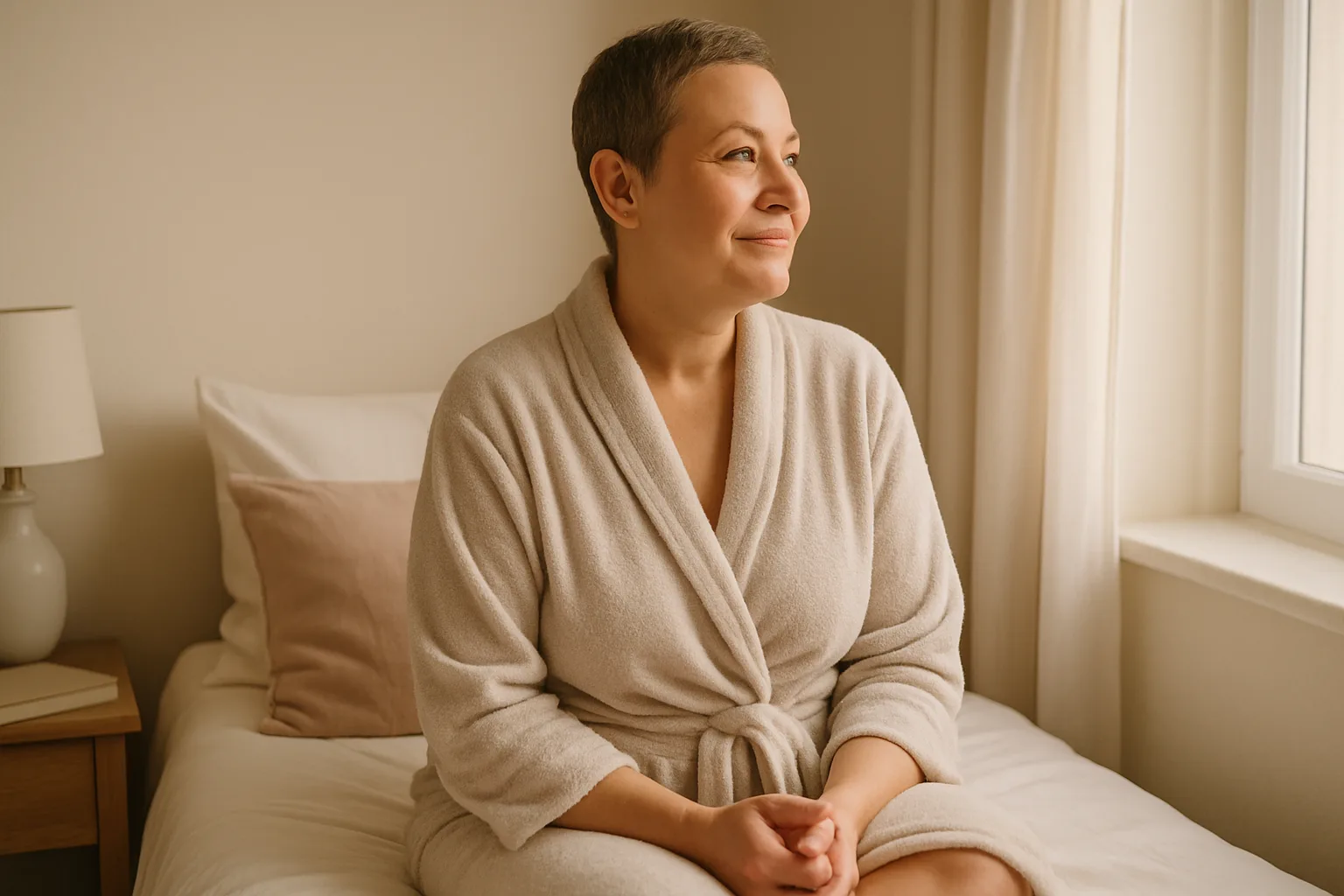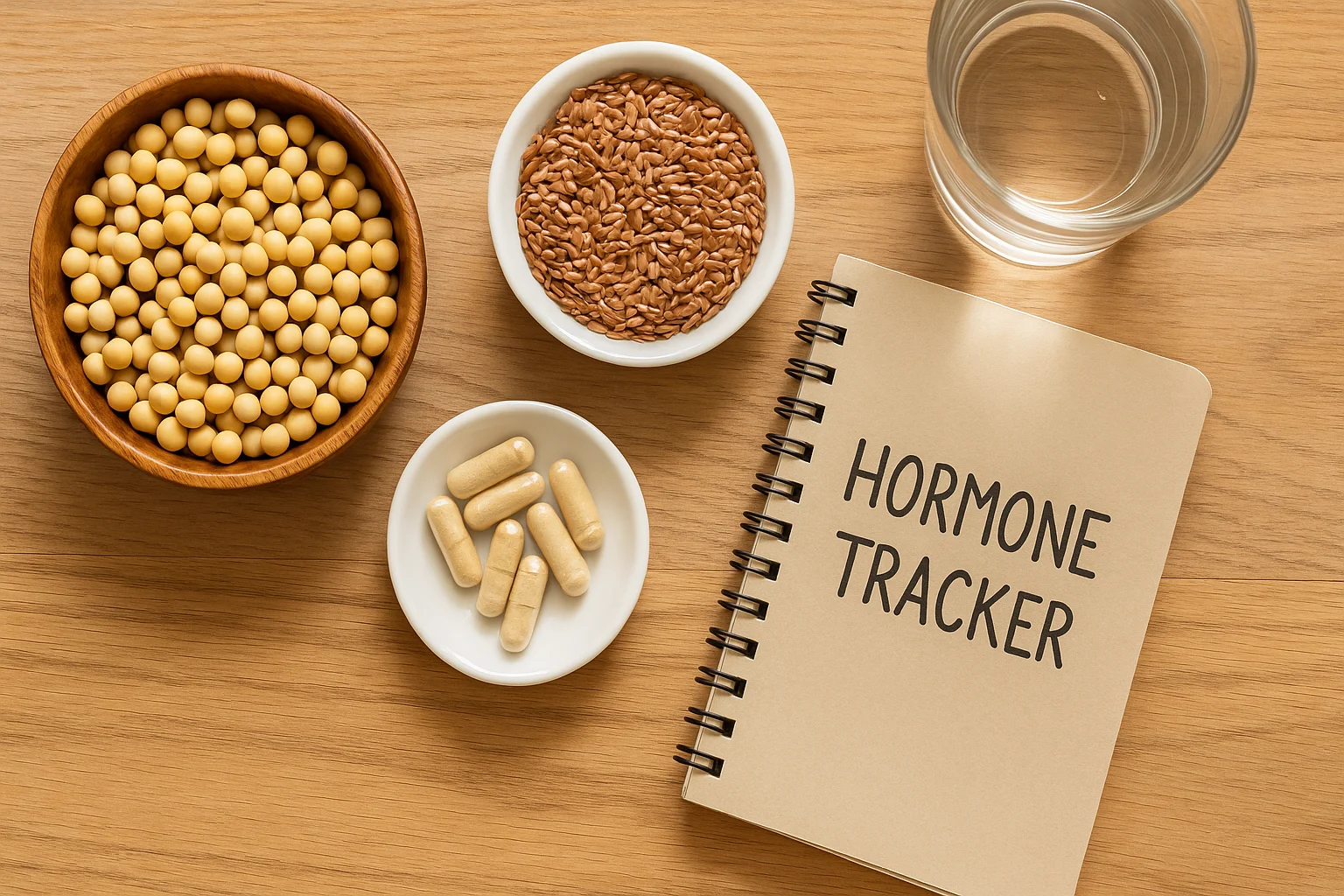
Your body has changed, but pleasure and intimacy are far from gone. If you’re navigating sexuality after hysterectomy, here’s how to reclaim intimacy after surgery, on your terms.
Physical recovery gets a lot of attention, but rediscovering post-hysterectomy sexual wellness is just as important. It’s a journey that touches your body, emotions, hormones, and relationships. Getting a handle on these changes helps you rebuild confidence and connection. For foundational support during this transition, explore our complete guide to women’s pelvic health. For a deeper guide, see sexuality after hysterectomy.
This guide takes a warm, body-positive approach to intimacy and pleasure after hysterectomy, diving into surgery types, their effects on your sex life, and practical ways to heal holistically. We aim to empower you—whether you’re a woman recovering, a supportive partner, or a healthcare professional—to embrace a fulfilling sex life. Let’s shed light on intimacy after hysterectomy, a topic often left in the shadows.
Explore Your Recovery Today!Runs locally in your browser — nothing is stored.
Table of Contents
Key Takeaways for Sexuality After Hysterectomy
- Surgery Type Matters: Partial, total, or with oophorectomy—each type uniquely affects sexual function and hormones.
- Embrace Emotional Shifts: Changes in libido, body image, or lubrication are normal. Acknowledging them is the first step to healing.
- Holistic Healing: Pelvic floor exercises, hormone support, and open communication may nurture post-hysterectomy sexual well-being.
- Patience is Key: Resuming intimacy is gradual. Listen to your body and seek professional guidance if needed.
- Pleasure Persists: Many women may enjoy sex post-surgery, often finding relief from prior issues.

How Hysterectomy Types Affect Sexuality
A hysterectomy removes the uterus, but its impact on intimacy after surgery varies by procedure. Understanding your surgery type is crucial for navigating recovery.
Types of Hysterectomy
- Partial (Supracervical) Hysterectomy: Removes the upper uterus, leaving the cervix.
- Sexual Impact: Some women report minimal change in sensation after partial hysterectomy, as the cervix may retain nerve endings. Consider asking your clinician how this may apply to you.
- Total Hysterectomy: Removes the entire uterus and cervix.
- Sexual Impact: Removing the cervix may alter deep penetration sensations. However, the vagina remains, and pleasure from other areas persists.
- Hysterectomy with Bilateral Salpingo-Oophorectomy (BSO): Removes the uterus, cervix, fallopian tubes, and ovaries.
- Sexual Impact: It can lead to surgical menopause, which brings its own challenges—physically and emotionally.
- Vaginal Dryness: Thinner, drier tissues due to low estrogen, which may make intercourse uncomfortable.
- Low Libido: Reduced estrogen and testosterone can lower sex drive.
- Menopausal symptoms: Hot flashes and night sweats may affect mood and intimacy.
- Sexual Impact: It can lead to surgical menopause, which brings its own challenges—physically and emotionally.
This post has affiliate links. We may earn a commission. Learn more.
The vagina remains functional post-surgery, capable of expansion and lubrication, though hormonal changes may require support.
Navigating Emotional and Hormonal Changes
A hysterectomy doesn’t just change your body—it can stir up emotional and hormonal shifts that affect sexual well-being after hysterectomy. Gently addressing these changes is a key part of your healing journey.
Libido and Desire Changes
It’s common for desire to dip. Be gentle with yourself—that patience helps you heal.
- Hormonal Shifts: An oophorectomy leads to a big dip in estrogen and testosterone levels, which may reduce desire.
- Pain or Discomfort: Post-surgical pain can dampen interest in intimacy.
- Fatigue: Recovery demands energy, making intimacy feel difficult.
- Medications: Some post-surgery drugs may lower libido as a side effect.
- Psychological Factors: Anxiety about pain or feeling “broken” can suppress desire.
Processing them with self-compassion practices is helpful for rebuilding confidence.
Vaginal Dryness Challenges
Especially after oophorectomy, vaginal dryness is common due to:
- Estrogen Decline: Thins vaginal tissues, reducing elasticity and lubrication.
- Discomfort: Dryness might make intimacy feel uncomfortable at first—but many people improve with support.
- Arousal Changes: Mental arousal may not translate to physical lubrication.
Addressing these symptoms can make intimacy after hysterectomy more comfortable.

Natural Solutions for Sexual Wellness After Hysterectomy
Restoring post-hysterectomy sexual wellness often benefits from a holistic approach. Here are supportive strategies:
Pelvic Floor Therapy
Pelvic floor muscles support sexual function and orgasm. Surgery may weaken them, but pelvic floor therapy may help with comfort and function.
- What it is: A specialized therapist assesses and treats pelvic floor dysfunction.
- Potential benefits:
- Enhanced sensation and orgasm intensity (varies by person).
- Reduced pain linked to muscle tension.
- Improved blood flow and natural lubrication.
- Better bladder control.
- Exercises:
- Kegels: Squeeze and release pelvic muscles as if stopping urine flow.
- Diaphragmatic Breathing: Helps relax the pelvic floor.
- Vaginal Dilators: May help with vaginal tightness—ask your clinician about timing.
Evidence suggests pelvic floor muscle training can improve sexual function for some people. Results vary—ask your clinician what’s right for you.
Hormone Support for Sexual Wellness After Hysterectomy
Hormonal changes can significantly affect post-hysterectomy sexual wellness. Consider these options with your clinician:
- Hormone Therapy: Systemic (pills, patches) or local (vaginal creams, rings) estrogen may help relieve dryness and menopausal symptoms. Low-dose testosterone, under medical guidance, may support libido for some.
- Natural Remedies:
- Phytoestrogens: Foods like flaxseeds or soy may support balance for some; evidence varies.
- Herbs: Options such as black cohosh or maca may help; check safety with your clinician.
- Supplements: Omega-3s and vitamin D support overall health.
- Lifestyle: A balanced diet, gentle exercise, and stress management (yoga, meditation) can support hormonal health.
For an in-depth overview, see Mayo Clinic’s guide on hormone therapy.
Talk with your clinician about benefits, risks, and timing of HRT or supplements, especially after oophorectomy or if you have personal risk factors.
Communication for Intimacy
Open dialogue with your partner is crucial for rebuilding sexual well-being after hysterectomy. Try incorporating bonding exercises to strengthen your connection.
- Share fears, anxieties, or hopes openly.
- Educate your partner about surgical impacts.
- Discuss what feels good or uncomfortable.
- Explore non-penetrative intimacy like cuddling or massage.
- Use “I” statements, like “I feel nervous about pain,” to reduce blame.
- Plan “intimacy dates” for connection without pressure.
Resuming Intimate Life After Hysterectomy
When it comes to sexuality after hysterectomy, timing depends on healing, procedure type, and your doctor’s clearance.
Timing and Guidelines
Many clinicians advise waiting about 6–8 weeks before vaginal penetration to allow healing (some guidance ranges 4–6 to 6–12 weeks). Always confirm with your surgeon.
- Listen to Your Body: Avoid intimacy if pain or discomfort persists.
- Doctor’s Clearance: Confirm healing at your post-op check-up.
- Start Gently: Use lubrication and control depth with comfortable positions.
- No Rush: There’s no single “right” timeline—just yours.
What to Expect
Intimacy may feel different, but pleasure is still possible:
- Sensation Changes: You may notice differences—especially with deeper intimacy—but that doesn’t mean pleasure is gone.
- Dryness: Use water-based or silicone-based lubricants generously.
- Orgasm Variations: Orgasms may feel more or less intense; explore what works now.
- Emotional Readiness: Anxiety or numbness is normal—be patient.
- Foreplay: Extend foreplay for arousal and lubrication.
- Positions: Try shallow penetration or positions you control.
- Sex Toys: Clitoral vibrators can enhance pleasure.

Post-Hysterectomy Readiness Checker
This interactive checker offers general education only—it can’t replace a medical evaluation. If you have any bleeding, fever, or severe pain, contact your clinician promptly.
Intimacy Readiness Checker
Select your procedure and recovery time to see guidance tailored to your situation.
Start by choosing your procedure and adjusting weeks since surgery. Your personalized guidance will appear here.
Frequently Asked Questions
Conclusion
Sexuality after hysterectomy can evolve—and with time, guidance, and communication, pleasure and connection are very possible. Know your procedure, pace your return, and tailor support for hormones, comfort, and confidence. Partner dialogue and pelvic floor care go a long way. Follow your clinician’s clearance and let your body lead.
This article is for educational purposes only and isn’t medical advice. Recovery and sexual readiness vary by person and procedure. Always follow your surgeon’s guidance and ask about timing, risks, and options that fit your health history.